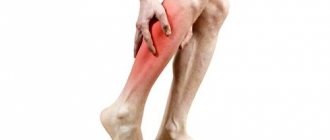Mechanisms of stress, Consequences of stress, Prevention of stress Irina Vasilyeva Over the centuries, women have experienced a lot of severe stress. Previously, these were burning huts and galloping horses, now they have been successfully replaced by numerous other difficult situations, weighing heavily on fragile women’s shoulders. According to the classical definition, stress is a person’s reaction to any events that exceed his adaptive capabilities. But what if this person is a beautiful representative of the fairer sex? How to reduce symptoms of stress in women?
Good afternoon, dear reader! The condition that occurs in a woman after stress is different from the male reaction. And this is not surprising. Women are different from men both physiologically and psychologically. Experiences of stressful events, both small (a quarrel with a friend, a reprimand from a superior, a child’s rudeness) and large ones (disasters, losses) differ markedly among representatives of different sexes.
What is stress and where does it come from?
We are accustomed to perceiving stress as something negative, but in fact it is simply a reaction of the body, a response to overstrain, strong emotions, both positive and with a negative connotation. In this condition, the hormone adrenaline is actively produced, forcing a person to think about the situation and look for a way out of it. Causes of stress can be :
- conflicts with colleagues, relatives, friends;
- dissatisfaction with yourself, your achievements or appearance;
- constant lack of money, debts;
- routine lifestyle without vacation, proper rest;
- illness or death of a loved one;
- job loss;
- loneliness.
Recently, stressful conditions have often developed against the backdrop of the coronavirus pandemic. This is caused by a constant fear of getting sick, a strong concern for loved ones, and the inability to maintain the usual way of life.
Stress and gynecological diseases
Whatever the reasons that caused psycho-emotional stress, the body reacts negatively. Sleep and appetite worsen, libido decreases, spasms and pain occur.
Stress negatively affects hormonal levels, the immune and nervous systems. As a result, a woman becomes vulnerable to infections and inflammatory processes. Some of the typical gynecological diseases that occur as a result of a reaction to strong emotions are thrush and mastopathy. They are caused by hormonal imbalance. Research has also found that stress can trigger cancer processes and cause ovarian and breast cancer.
Overload in the psycho-emotional sphere entails:
- changes in microflora;
- menstrual irregularities;
- chest pain;
- dryness of the vaginal mucosa.
In addition, it becomes difficult for a woman to achieve orgasm, libido and the level of sexual excitability decrease.
How does stress develop?
But when stress occurs too often or exceeds the body’s capabilities, it begins to weaken and lose strength.
It can even lead to serious illness. three phases in the development of stress :
- mobilization of the body's defenses and resources to combat the stress factor. At this stage, hormones are released that give a boost of energy;
- confrontation - searching for a way out of the situation. The body tries to return to normal functioning due to hormonal changes;
- exhaustion – with prolonged exposure to traumatic circumstances, the body loses the ability to resist, adapt and becomes vulnerable to all kinds of diseases.
The severity of each stage depends on the individual characteristics of the person, his state of health, type of temperament, character.
Symptoms and signs of stress
There are a number of symptoms that
appear in most people who find themselves in a state of stress. Physiologically this manifests itself in:
- a sharp drop or, conversely, an increase in pressure;
- attacks of chills or fever;
- increased sweating;
- dizziness;
- digestive disorders;
- significant weight gain or loss;
- muscle hypertonicity and tremor (shaking).
Headaches, pain in the stomach and back often occur, and rashes similar to allergic ones may appear. Stress is accompanied by loss of sleep and appetite .
How does stress affect the body?
Severe or prolonged stress may well cause the development of diseases.
In this case, the most weakened systems of the body suffer, so the consequences vary from person to person. Against the background of a stressful state, the following may develop :
- bronchial asthma due to constant tension of the muscles involved in the respiratory system;
- hypertension, heart and vascular diseases due to constantly high blood pressure and rapid heartbeat;
- peptic ulcer;
- neurotic and depressive disorders;
- damage to the gastric mucosa due to increased production of gastric juice;
- diabetes – due to the liver releasing an additional portion of glucose and increasing its concentration in the blood;
- gynecological problems up to infertility.
It is impossible to predict exactly what problems stress will provoke. Moreover, they can appear individually or in groups, or all at once, in a complex.
Consequences of stress in women
If stress is not treated, women may develop persistent health problems, which will be expressed in the exacerbation of chronic diseases, or in the development of inflammatory and degenerative processes. The main types of consequences and complications of stress in women include:
- Eating behavior disorders (anorexia, bulimia).
- Changes in emotional mood. Due to constant or regular stress, women become more whiny, touchy, and vulnerable.
- Sleep disorders. Persistent states of insomnia, or intermittent sleep, or, on the contrary, drowsiness, may be observed. Often women complain that they sleep and do not get enough sleep.
- Stomach ache. Due to stress, women either overeat, or eat little, or not regularly. As a result, digestive disorders develop.
- Heart diseases. Stress has a negative impact on the entire cardiovascular system, so it leads to arterial hypertension, heart attacks, and strokes.
- Decreased immunity.
- Impaired brain activity, which is reflected in decreased concentration.
- Libido. Often women become frigid due to their experiences.
Stressful conditions can even lead to cancer, and some scientific studies have already confirmed the existence of a relationship between these phenomena in the lives of women.
How to avoid stress?
The effect of serious stress on the body is clearly negative. But doctors and psychologists have perfectly studied the mechanism of development of such conditions and have found many ways to prevent and combat them. The most interesting thing is that there is nothing complicated about preventive measures. For example, the following help prevent stress :
- morning exercises, regular sports training, especially those related to water (swimming, water aerobics);
- regular rest, preferably in nature;
- reasonable planning of the working day - alternating periods of intense work and proper rest;
- healthy sleep - at least 7-8 hours a day, not once a week, but every day;
- complete nutrition.
As you can see, these are typical tips for those who want to lead a healthy lifestyle
. Hence the conclusion: it is he who is the most terrible enemy of stress.
How to help yourself?
But if you constantly worry about one thing or another, neither 8 hours of sleep nor proper nutrition will help protect you from stress.
This means you need to pay attention to your mental health. First, you need to determine exactly what exactly worries and excites you, i.e. find the cause of stress. Having identified the source of the problem for yourself, look for ways to distract yourself, switch to pleasant activities, for example, meeting with friends, reading, going to the theater or concert. It also happens that the source of stress is part of your life, and there is no way to change it. But even in such a situation, no one bothers you to change your own attitude towards circumstances. It wouldn’t hurt to analyze your experiences, but do it as if from the outside. It is quite possible that it will turn out that the events that took place are not at all worth such strong emotions. Try to focus on the positive
,
because when we are upset, life situations seem much worse than they really are.
Symptoms
The signs by which the female body signals the presence of distress are very diverse. I will tell you about the most common ones.
Changes in eating behavior
This includes
- eating stress food
- complete refusal of food,
- the appearance of “strange” taste preferences.
Take this point seriously. Analyze how many times a day do you eat not because you are hungry, but for any other reasons? Or maybe, on the contrary, you refuse to eat because you “have no time” or “nausea”?
Even the slightest change in nutritional needs can lead to serious consequences: anorexia or, conversely, obesity.
Violations of work and rest patterns, sleep problems
Drowsiness and difficulty concentrating during the day, insomnia at night, thinking about the coming day at night, maintaining dialogues in the mind with an invisible interlocutor - all this signals the presence of long-term stress of moderate intensity.
You may experience nightmares, heavy “sticky” dreams, after which you wake up even more tired.
By analyzing dreams, you can tell a lot about a person’s experiences. However, this extensive topic is worthy of a separate publication.
At the moment, my publication is being prepared, dedicated to the study of dreams and the emotions that cause them. I promise that as soon as the publication appears in print, my blog subscribers will be the first to know about it.
Somatic manifestations
Pain of unknown etiology, including headaches, panic attacks, decreased immunity, cardiovascular disorders and problems in the gastrointestinal tract. Constant stress not only contributes to the emergence of diseases, but also aggravates existing chronic diseases.
The emergence of bad habits
To minimize the effects of stress, it is common in our culture not only to “eat stress,” but also to “wash it down.” By the way, it is the argument “drink and everything will pass” that is often heard among less educated segments of the population as a counterweight to psychotherapeutic work with a specialist.
Unfortunately, the myth that alcohol and other substances that affect consciousness are effective against stress still successfully wanders in the heads of our compatriots. However, it has long been proven that drinking alcohol, even in small doses, can only add difficulties to everyday life, but does not solve them.
Personal changes
Women are much better at multitasking at home and at work compared to men.
But at the same time, she often stops noticing that she has already taken on more than she can handle.
Long-term exposure to stress can lead to emotional burnout, in which our body seems to “save” resources.
There is a kind of blocking of emotions “until better times.”
When a person burns out, he becomes like a biorobot, meekly carrying out his activities without attaching feelings and emotions to it.
Another option for personal changes may manifest itself in an increase in the level of anxiety, aggressiveness, and a drop in self-esteem.
At the same time, a woman can become irritable, whiny, capricious, and demonstrative.
Neither option is better than the other. Both of them lead to a deterioration in interpersonal relationships in the family: with children, spouse, parents.
If all else fails
But what to do if you signed up for fitness, walk the dog for a long time every evening, go to bed no later than 23.00 and are seriously interested in knitting, but you still can’t cope with stress? First of all, don’t despair
and don’t get depressed.
If you don't know how to change a faucet, you call a plumber, right? It’s the same with stress: if you couldn’t resolve the issue on your own, contact a psychotherapy specialist .
psychotherapeutic techniques are used to combat stress ,
so you will have the opportunity to choose what suits you:
- Cognitive-behavioral therapy – psychological training that allows you to identify negative thoughts, analyze them, change your behavior pattern, attitude towards a specific situation;
- art therapy – the so-called “art treatment”, which allows you to throw out emotions and understand yourself;
- auto-training – training in methods of controlling breathing and muscle tone, changing internal attitudes.
There are a lot of such methods; an experienced specialist will definitely help you choose the most suitable and effective option.
How to cope with stress?
To effectively deal with stress, it is necessary to understand its causes. Problems cannot be “kept to yourself”; it is better to share them with loved ones, since the support of others is of great importance.
Important: It is advisable to change your surroundings for at least a couple of days and go on vacation outside the city.
It is necessary to stop using psychostimulants, since they do not solve the problem, but temporarily dull perception. Smoking, alcoholic drinks and even strong coffee are contraindicated.
Your diet should include foods high in vitamin B (wheat, rice, seeds). It is recommended to avoid consuming spicy, fatty and fried foods, as well as a variety of refined foods, at least for a while. When stressed, fractional meals are recommended, i.e. in small portions 4-6 times a day. Experts also recommend eating 1 banana per day. An excellent remedy against stress is a vitamin salad of oranges and lemons with honey.
Morning exercises and yoga are very effective for combating stress. Physical exercise promotes the release of endorphins, which significantly improves mood and gradually stabilizes the activity of the nervous system. Before going to bed, it is advisable to take a walk in the fresh air.
Herbal medicine can achieve a good effect in treating stress in women. For psycho-emotional overload, decoctions and infusions of valerian root, as well as lemon balm, mint, chamomile and hop cones are recommended. In the evening, it is recommended to take a relaxing bath at a comfortable temperature. It is advisable to add decoctions of medicinal plants to the water.
It is also recommended to purchase a special aromatherapy lamp. The smell of heated essential oils of mint, St. John's wort or sage promotes relaxation.
The text was checked by expert doctors: Head of the socio-psychological service of the Alkoklinik MC, psychologist Yu.P. Baranova, L.A. Serova, a psychiatrist-narcologist.
CAN'T FIND THE ANSWER?
Consult a specialist
Or call: +7 (495) 798-30-80
Call! We work around the clock!










